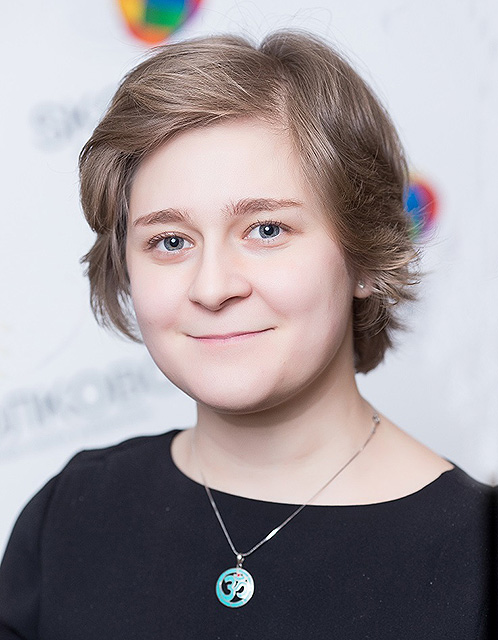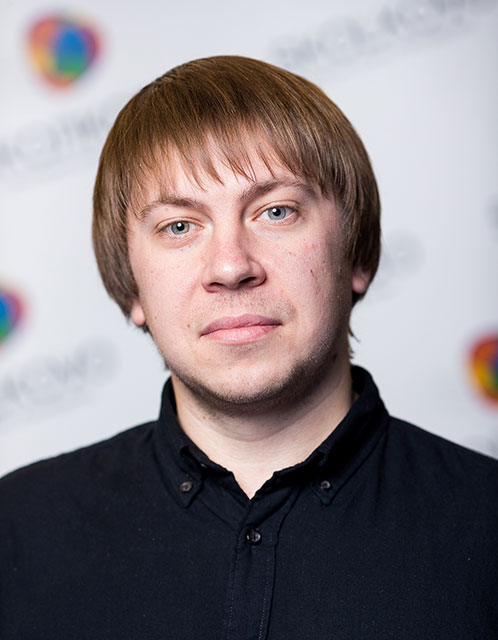
The SKOLKOVO Method
The SKOLKOVO Method is a collective, problem-oriented, highly engaging, a large group approach to addressing the issues of structural development, or, as we like to say – to ‘constructing the future’.
It is gamified in the sense that the result is never known beforehand.
The SKOLKOVO Method is also sometimes called Future Programming Machine.
It can and has been applied to such various objects as
language
Regional strategies
Moscow Region, St Petersburg Region, Khanty-Mansi Autonomous Okrugschool
Universities
National Research Nuclear University MEPhI, Tomsk State University, University of Tyumenlocation_city
City strategies
Zlatoust, Yelabuga, Ust-Katavand many others.
At SEDeC, we employ the SKOLKOVO Method in our work with universities, schools, professional colleges, as well as groups of educational institutions, and whole regional educational systems.
Formats
As a rule, we divide the participants into groups of 5-7 people, each working on a different aspect/topic. The communication is groups is organized by a specially trained team of experts of communication.
Typically, sessions last 5-6 days. Every day work in groups (up to 3 hours) is alternated with work at so-called plenaries (up to 4 hours) – joint discussions where the results of groupwork are shared and common ground is reached.
We also use expert input to infuse the work with urgently needed information. These lectures do not last over 2 hours each.
Typical phases of the process
1. Analysis of the current situation
At the first stage participants of our programs describe the landscape of barriers, gaps, and problems of modus operandi of a city, a region, a university or any other organizational structures. The task here is to analyze the current model of operation (M1).
No subjective opinions are allowed. Any statements are challenged and should be defended based on arguments and data. It is crucial to step out of the comfort zones intellectually and strategically.
2. Taking a stance
We uncover the participants’ attitude to the situation in a open and objective manner. It is of utmost importance to engage every participant to take a personal stance and thus assumes personal responsibility for their opinion.
It can be said that the problems ‘are appropriated’, that their ownership is declared. The situation always has ‘an owner’ – a person or a group of people whose professional pursuits and goals are affected by it.
3. Problem setting
After describing the status quo and taking a personal position on it, participants are then supported in distilling the root causes out of the ‘problem mess’ (Russell Ackoff). As most problems that complex organizational structures have are ‘wicked’ in the sense that they are compound and might seem contradictory.
4. Setting new goals
Here we define the ambition, and set new goals and targets – a new vision for the future of a city, a region, a school or any other entity we work with. Who does the university/city/region want to be and where does it see itself in the next 5, 10, or 20 years? What kind of “brand” does it want to stand for?
5. Developing a new model
Once the goals are set, a new model (M2) of an organizational structure can be developed. This is a process that resembles engineering – the model should serve the new goals in the best possible way.
6. Developing a road map
Participants come up with a concrete set of steps to achieve the desired result. The evaluation of required resources – human resources, financial resources, necessary time investments, and determining the timeframe are important constituents of this process.
The sequence of these phases is not always linear and and advancement is often iterational, as we move from one phase to another and back until the process is complete.
What is meaningful cannot be boring
The approach requires the special mode of communication: direct, straightforward, in the critical thinking mode. This type of communication is tough, and oftentimes stressful. However, at the same time it is deeply inspiring, because ‘what is meaningful cannot be boring’, as we say.
The role of the SEDeC team
We act as a ‘red team’ of sorts, aiding the participants in searching for root causes of problems, contradictions and missing links in a new model of operation, etc.
Our team is composed of experts in the fields of education, urban development, regional development and others, as well as experts in communication, all versed in the SKOLKOVO method’s extensive toolbox.
Schematization
A unique feature of our approach, and also something that we consider one of the strongest competitive advantages of the SKOLKOVO method is schematization – the graphic representation of notions, models, and logical connections. Schematization allows us to use complex and simultaneously detailed representations of discussions in our strategy sessions. Crucially, the schemes are usually jointly made by groups of participants. Thus they represent collective vision.
Background of the approach
The SKOLKOVO Method draws on work of the Moscow methodological circle around Georgy Shchedrovitsky and his son Pyotr Shchedrovitsky, as well as on practices of idealized design as described by Russell Ackoff. The Method represents a form of “organizational-activity planning” (Russian: organizatsionno deyatelnostnyie proektirovanie) and “organizational-activity games” (Russian: organizatsionnyye deyatel'nostnyye igry) adopted at the Moscow School of Management SKOLKOVO.
You can read about the format of our events here: Strategy Sessions; Rectors’ School
Centre coordinators
Request a consultation
Follow
us online
Watch
lectures
Become a part
of our community
Visit
our events
Career
at School
Contact
us
- +7 495 539 30 03
- info@skolkovo.ru
- Call back request

Consent to the Processing of Personal Data
Hereby I, hereinafter referred to as the «Subject of Personal Data», pursuant to the Federal Law of 27.07.2006 № 152-FZ «On Personal Data» (as amended), freely, of my own accord and in my own interest, give my consent to the Moscow School Management «SKOLKOVO» (hereinafter referred to as the «School», legal address: 143025, Moscow region, Odintsovsky district, Skolkovo, Novaya Street, 100) to the processing of my personal data provided during the registration by filling out the web form on the School's website skolkovo.ru and its subdomains *. skolkovo.ru (hereinafter referred to as the «Website»), directed (filled) with the use of the Website.
I understand personal data as any information relevant to me as the Subject of Personal Data, including my last name, first name, address, education, occupation, contact information (phone, fax, email, postal address), photographs, and other information. I understand the processing of personal data as the collection, classification, accumulation, clarification, updating, modification, use, distribution, transmission, including cross-border, depersonalization, blocking, destruction, permanent storage, and any other actions (operations) with personal information.
The processing of personal data of the Subject of Personal Data is carried out solely for the registration of the Subject of Personal Data in the database of the School and then directing to the Subject of Personal Data mail messages and SMS notifications from the School, its affiliates and/or sub-contractors, including advertising content, information letters and newsletters, invitations to the events of the School, and other advertising and news content, as well as for the confirmation of the identity of the Subject of Personal Data when visiting the events of the School.
The date of issue of the consent to the processing of personal data by the Subject of Personal Data is the date of sending the registration form from the Website of the School.
The processing of personal data of the Subject of Personal Data can be accomplished by means of automation and/or without the use of automation in accordance with applicable laws of the Russian Federation and internal regulations of the School.
The school takes the necessary legal, organizational and technical measures or ensures their application to protect the personal data against unauthorized or accidental access, destruction, modification, blocking, copying, providing, distribution of the personal data, as well as other illegal actions towards the personal data and commits itself to preserve the confidentiality of the personal data of the Subject of Personal Data. The school has the right to involve subcontractors in the processing of personal data of the Subject of Personal Data subjects as well as the right to transfer the personal data to its affiliates for processing, ensuring the assuming of the relevant obligations of personal data confidentiality by such subcontractors and affiliates.
I am aware that:
1) this consent to the processing of my personal data provided during registration at the Website of the School and directed (filled) with the use of the Website is valid for twenty (20) years starting from the date of the registration at the Website of the School;
2) the consent may be revoked by me on the basis of a written application in optional form;
3) the provision of personal data of third parties without their consent is punishable in accordance with the current legislation of the Russian Federation.





